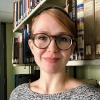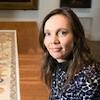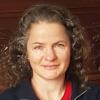Medieval European Medical Manuscripts
Please set your timezone at https://www.chstm.org/user
Respectful Behavior Policy
Participants at Consortium activities will treat each other with respect and consideration to create a collegial, inclusive, and professional environment that is free from any form of discrimination, harassment, or retaliation.
Participants will avoid any inappropriate actions or statements based on individual characteristics such as age, race, religion, ethnicity, sexual orientation, gender identity, gender expression, marital status, nationality, political affiliation, ability status, educational background, or any other characteristic protected by law. Disruptive or harassing behavior of any kind will not be tolerated. Harassment includes but is not limited to inappropriate or intimidating behavior and language, unwelcome jokes or comments, unwanted touching or attention, offensive images, photography without permission, and stalking.
Participants may send reports or concerns about violations of this policy to conduct@chstm.org.
Upcoming Meetings
There are no currently scheduled upcoming events.
Past Meetings
-
March 23, 2023
Professor Faith Wallis (Dept. of History and Classical Studies/Dept. of Social Studies of Medicine, McGill University), 'Dosage, distillation and deodorants: an enigmatic Italian manuscript of the mid-16th century'
Abstract:
In 2022 the Osler Library of the History of Medicine at McGill University acquired a 16th century manuscript, described by the dealer from which it was purchased as a pharmacy handbook. Closer inspection of the text, however, has revealed a more complicated story. The aim of my talk is to summarize what I have learned to date about this enigmatic volume, in the hope that scholars of Renaissance alchemy, pharmacy, medical practice, the marketing of "secrets", and the interface of print and manuscript culture will be able to exploit its contents.
The manuscript is largely in Latin, with some Italian passages, and can be dated to after 1554 on the basis of an account of how the compiler (or his source) cured a patient of anal fistula anno preterito in 1553. It is written in a single hand, and is in two parts. The first part (fols. 1r-30r) is a didactic treatise addressed to young students on the subject of pharmaceutical dosage. In fact it is based on, and quotes liberally from (though without ascription) Matteo Corti's De dosibus (printed in Venice in 1562). However, the text has been very significantly abbreviated, altered, and expanded. The second part (fols. 33r-84v) is a receptarium that gives pride of place to "wonder cures". It begins with instructions for preparing an Elixir of Life or Aqua mirabilis involving scores of ingredients and a complex distillation process. Compounds for healing wounds in an exceptionally short time are followed by a recipe for Caravita's Oil, a famous universal antidote against poison and remedy against plague. The collection then devolves into more pedestrian recipes for problems like toothache, joint pain, and miscarriage, but there is also a recipe for "synthetic" camphor, and a test for determining whether camphor is genuine or fake. Following a treatment for gout ("eccellentissima pro nobilibus"), are several for the French Disease, all made with guaiacum, as well as "the Doge's remedy" for weak digestion ("peculiare remedium Illustrissimi Duci Venetiarum"). The last part of the collection is devoted to cosmetics. The products include an "aqua virginalis" to make a woman's face beautiful (almost identical to recipes printed by Isabella Cortese), treatments to remove blemishes, handcreams, but also instructions for gilding ostrich plumes. There are recipes for potable gold (real and synthetic); concoctions to prevent or stimulate hair growth; hair dyes; and at the end, deodorants, both for the armpits and for the feet.
This manuscript provokes a number of questions about the boundaries between print and manuscript culture in the 16th century, as well as the diffusion of "secret" remedies, whether for Caravita's Oil or aqua virginalis. It probes the connections between academic medicine (De dosibus) and the endorsement of noble and elite patients, as well as the ambiguous character of alchemical processes that can manufacture spurious camphor and potable gold … or the Elixir of Life.
The Osler manuscript can be viewed at: https://archive.org/details/McGillLibrary-osl_in-christi-ni-ami-cupres-junib_WZ240IN361550-21429/mode/2up
Biography
Prof. Faith Wallis is Professor Emerita at McGill University, where she holds a joint appointment in the Department of History and Classical Studies and the Department of Social Studies of Medicine. Her research focuses on the textual and manuscript transmission of medical and scientific knowledge in the Middle Ages. Her anthology of translated sources, Medieval Medicine: a Reader, was published by University of Toronto Press in 2010. The first volume of her edition of the writings of Bartholomeus "of Salerno", a key figure in the emergence of academic medicine in the twelfth century, appeared from SISMEL last year. She has also published a number of articles on particular medical manuscripts and the issues of readership and use, notably "Between Reading and Doing: the Case of Medieval Manuscript Books of Practical Medicine," in The Edinburgh History of Reading: A World Survey from Antiquity to the Present, ed. Mary Hammond (2020) and "The Book of the Head and the Book of Skin: Compilation and "Decompilation" in some Medieval Manuscripts of Practical Medicine in the Osler Library (McGill University)" Florilegium 33 (2016): 15-44.
-
January 26, 2023
Róisín Donohoe (University of Cambridge), '"if it be hir tyme": Childbirth Charms in Middle English Manuscripts'
Abstract:
The resilience of women during childbirth tended to be taken for granted in late medieval medicine and society. After all, Genesis 3:16 states ‘in pain you shall bear children.’ For the sexually active laywoman, labour pangs were considered a necessary inheritance of Eve’s transgressions. Previous scholarship has reflected on late medieval childbirth as a ‘rehearsal for death’ and that the survival and subsequent purification and baptism of both mother and child were, at the time, the sole considerations for a ‘successful’ childbirth.
However, there were efforts, in both domestic medicine and devotion, to provide comfort and relief in parturiency. Childbirth recipes, prayers and charms provided analgesic reassurance while hagiographies of childbirth saints such as St Margaret and St Dorothy emphasise a childbearing woman’s agency in bringing about her own pain relief with the aid of her female community. This paper will specifically examine the role of childbirth charms in caring for the parturient woman and their emphasis on pain relief and communal comfort.
Using a set of fifteenth-century English medical compilations, this paper will examine a set of charms which childbearing women utilised to enact therapeutic and devotional practices, thus gaining comfort, healing, and protection during a particularly perilous time in their lives. It will investigate the different motifs, linguistic structures and performative instructions of these charms, considering how they might have been utilised by women and their attendants across the social strata in England.Biography:
Róisín Donohoe is a final year PhD candidate in the Faculty of History at the University of Cambridge. Her work looks at the beliefs and practices associated with childbirth in fifteenth- and sixteenth-century England.
-
December 15, 2022
James Freeman and project team, 'Curious Cures in Cambridge Libraries'
Abstract:
'Curious Cures in Cambridge Libraries' is a two-year project (May 2022 to May 2024) to digitise, catalogue and conserve over 180 medieval manuscripts that contain unedited medical recipes. It is funded by a Wellcome Trust Research Resources Award.
The results of the project - high-resolution digital images, detailed descriptions and full-text transcriptions - will be made freely available online. Cover-to-cover digitisation will enable researchers to see the recipes in their original setting: where they were written on the page and how they were presented, and whether they were added by different hands or at different times. The project team are also producing full-text transcriptions of the approximately 8,000 medical recipes that the manuscripts contain. This is the first concerted effort by a group of libraries to make all of the medical recipe contents of these types of manuscript available in this manner.In this session, the members of the project team will describe their work, and share the project’s initial findings.
Biographies:
James Freeman is Medieval Manuscripts Specialist at Cambridge University Library and Principal Investigator for the Wellcome Trust-funded Curious Cures in Cambridge Libraries project.
Tuija Ainonen
Tuija Ainonen works part of the week at the Cambridge University Library as a cataloguer of medieval medical manuscripts with the project “Curious Cures in Cambridge Libraries". The other part of her week is spent in Oxford creating a new online inventory and catalogue of medieval and some early modern archival material at the Bodleian Libraries. She joined the Curious Cures project after working with medieval manuscripts and archives, their digitisation, cataloguing and dissemination at the Bodleian Libraries, Merton and Exeter Colleges in Oxford, the British Library, and the National Library of Finland. Her doctoral studies at the Centre for Medieval Studies at University of Toronto focus on pre-mendicant distinctiones collections that experiment on a variety of formats, techniques and organisational principles in arranging information about the different meanings and interpretations of Latin words.
Clarck Drieshen
Clarck Drieshen has studied the textual transmission of religious instructions in late medieval England, the Low Countries, and German-speaking lands in a doctoral dissertation at the Institute for Medieval Studies, University of Leeds. Subsequently, he has been a cataloguer of medieval manuscripts. After working on the British Library's England and France Project, 700-1200 and the Harley Cataloguing Project, he is now a project cataloguer for Curious Cures in Cambridge Libraries.
Sarah Gilbert
Sarah joined the Curious Cures project in July 2022 having completed an 8-month stint as a manuscript cataloguer for St John’s College, Cambridge. In 2020 she co-developed an online palaeography course for Durham University, and prior to that, while still a graduate student, had been a teaching assistant for medieval history and palaeography courses at Durham University. Sarah completed a PhD at Durham University in 2019, which examined the production, use, and circulation of scientific manuscripts in England before 1100. Since 2015, Sarah has been part of a team producing new editions and translations of, and commentaries on the scientific works of the medieval scientist and bishop Robert Grosseteste, where she is one of the project’s manuscript specialists. Sarah’s research interests include bookbindings, palaeography, and anything to do with the production and use of books in medieval England.
-
November 17, 2022
Ninon Dubourg, 'The Literary and Illuminated Depictions of "La Vieille" - A Disabled Old Women as a “narrative prosthesis”'
Abstract: The Roman of the Rose has already been studied in hundreds of publications to this day, as it was one of the most popular medieval French forms of poetry, a type of courtly literature called “mirror of love”, presented as an allegorical dream vision. It is also one of the most frequently and magnificently decorated texts of the Middle Ages. I will discuss one of the Roman’s characters, La vieillesse (the Old Age) and/or La Vieille (the Old Woman), in an intersectional manner, by taking into account gender, age and ability, and in an interdisciplinary way, by using history, art history and literature. I will try to show how the creation of a character who is supposed to be authoritative (or not!) could have used these characteristics to strengthen the narrative.
Biography: Dr Ninon Dubourg (ninon.dubourg@gmail.com) is currently an FRS-FNRS Postdoctoral Research Fellow in the "Transitions" Research Unit at the University of Liège, Belgium (Project DISREL - Disabled people’s religious experiences in Western Europe during the Late Middle Ages (1198-1503)). She holds a PhD in Medieval History from the University of Paris, France. Her research and publications focus on secular and clerical physical, sensory and mental disability in medieval Europe (XII - XV centuries).
-
October 27, 2022
Elma Brenner (Wellcome Collection), 'Distilling nature and harnessing wellness in late medieval French manuscripts'
Abstract:
This paper addresses one category of remedy among the broader spectrum of medical treatments that were fabricated by humans from natural ingredients in later medieval Europe. It focuses on distilled medicinal waters that were often described as ‘artificial’, and were gathered together, read and transmitted in manuscript volumes as well as, from the later fifteenth century, printed books. After reflecting on the popularity and general characteristics of manuscript collections of medicinal and cosmetic remedies, the talk examines a small number of French vernacular manuscripts, now held at Wellcome Collection, that contain instructions for making distilled waters. It considers how the remedies are organised and occasionally illustrated, as well as marginalia and other signs that they were read by contemporaries. It uses the materiality of the manuscript itself as a starting point for reflecting on the multiple forms of matter involved in the production of medicinal waters – from materia medica, to specialised vessels and other apparatus, to the human body that activated the apparatus and ingredients. Attention is also paid to the contribution of distilled waters to the broader efforts of late medieval practitioners and patients to preserve health and harness wellness.Biography:
Dr Elma Brenner is a Research Development Specialist at Wellcome Collection, London, UK, and an associate member of the Centre de recherches archéologiques et historiques anciennes et médiévales at the University of Caen, France (UMR 6273 – CNRS). Her research explores health, religious culture and the history of the book in medieval France and England. Among her publications are Memory and Commemoration in Medieval Culture (co-edited with Meredith Cohen and Mary Franklin-Brown, 2013), Society and Culture in Medieval Rouen, 911–1300 (co-edited with Leonie V. Hicks, 2013), Leprosy and Charity in Medieval Rouen (2015) and Leprosy and Identity in the Middle Ages: From England to the Mediterranean (co-edited with François-Olivier Touati, 2021). She is Co-Editor of Social History of Medicine.
-
June 16, 2022
Dr Adrian Plau (Wellcome Collection), 'Global contexts: Jain medical recipes in early Hindi'
Abstract:
This talk will explore global contexts to medieval European medical manuscripts by looking to understudied traditions of early modern vernacular medical treatises and recipes from North India currently held by Wellcome Collection. I’ll highlight the historiography of the ‘medieval’ in global contexts and its uses in Western imperialist propaganda and contemporary orientalist discourse, Wellcome Collection’s current work with manuscript cataloguing metadata, and present examples of vernacular North Indian medical manuscripts, including early research on the first-ever medical treatise in Hindi.
--
Dr Adrian Plau is Manuscript Collections Information Analyst at Wellcome Collection, working particularly with making the Collection’s global manuscripts more accessible and discoverable to wider audiences. As a 2018-2019 Wellcome Trust Research Bursary-holder, he led a project on the Wellcome Collection’s early Hindi medical manuscripts. His 2018 SOAS PhD presented a critical edition and literary study of the Sitacarit, a vernacular narrative of the seventeenth century that recounts the Ramayana epic from Sita’s perspective. His research has featured in publications such as Religions, Sikh Formations, and the Oxford History of Hinduism. He is a contributor to Digital Orientalist and writes a monthly column on Indian poetry for Asiapunkt. A 2022/23 recipient of the Headley Fellowships with the Art Fund, he is currently building a model for responsible repatriation of global manuscripts from GLAM institutions to source communities based in London.
(note: session will last an hour).
-
May 26, 2022
Please join us on Thursday 26th May. We are delighted to welcome back Dr Winston Black (St Francis Xavier University), who will speak on “Towards a New Edition of Macer Floridus: Making Sense of Two Hundred Witnesses”. * Please note that this session is one hour long *.
Abstract:
The verse herbal of Macer Floridus, De viribus herbarum, was one of the most popular medical texts of the Latin Middle Ages. It survives in over two hundred manuscript witnesses from the twelfth through sixteenth centuries, and was translated into every European vernacular. Despite its ubiquity, the Latin original has been little studied and there has been no edition in nearly two centuries. Ludwig Choulant’s 1832 edition presents an organized herbal of 77 poems, with the implication that this was the work read by medieval students of herbal medicine. This is the work that most scholars of medieval medicine use to understand Macer Floridus, but there are serious flaws with Choulant’s version. For the last decade, Winston Black has been gathering materials toward a new edition of De viribus herbarum, as a successor to his 2012 edition of Henry of Huntingdon’s Latin verse herbal Anglicanus Ortus. In this presentation Dr. Black will share some highlights of his research into the textual traditions and reception of Macer’s herbal, demonstrating that it was not a stable text, differing only in individual readings, but a constantly shifting mosaic of poems, glosses, and commentary designed to fit the needs of the scribe or audience. The kaleidoscopic nature of “Macer” poses significant challenges for the creation of a new edition, and Dr. Black will discuss his goals for an edition worthy of the twenty-first century and explore some questions about the practical and theoretical approaches to publishing such a mercurial text.Biography:
Winston Black is the Gatto Chair of Christian Studies at St. Francis Xavier University in Nova Scotia, Canada, where he pursues research and teaches courses on religion, medicine, and intellectual culture in Medieval Europe. He has published extensively on medieval herbalism, medical manuscripts, and the intersections of theology and medicine in the High Middle Ages. This includes his edition of Henry of Huntingdon’s Latin verse herbal Anglicanus Ortus, the document collection Medicine and Healing in the Premodern West, and the popular volume The Middle Ages: Facts and Fictions. He is currently writing Herbalism and Pharmacy in the Middle Ages: A Case Study for the University of Toronto Press, and co-editing with Dr. Lucy Barnhouse a volume of essays for Trivent Press called Beyond Cadfael: Medieval Medicine and Medical Medievalism, both due out in 2023.
-
April 28, 2022
Please join us for our second meeting of 2022. We are delighted to welcome Patrick Outhwaite (University of Groningen), who will speak on 'The Collecting Habits of William Osler: The Library Then and Now'.
Abstract:
1929 marked the opening of the Osler Library of the History of Medicine and the publication of its original catalogue, the Bibliotheca Osleriana. From its inception, the library had a clear set of aims that were defined by Osler himself and laid forth in the Bibliotheca. William Osler’s ambition was to create a library of significant authors in the history of medicine for teaching purposes. His modest collection of western medieval manuscripts presents a certain cohesion, reflecting the collecting habits and pedagogical aims of one person. This presentation explores the collecting habits of William Osler in comparison to his contemporary, and often auction house rival, Henry Wellcome. Through an investigation of the specific material details of the western medieval manuscripts, this talk reassesses the significance of Osler’s collecting philosophy over a century after his death.** Please note this is a one hour session **
-
March 24, 2022
The cataloguing of medical manuscripts
Please join us for our first session of 2022, when Anna Dysert (McGill University Library) and Laura Nuvoloni (Holkham Hall) will explore different approaches to cataloguing medieval European medical manuscripts.
Laura Nuvoloni, 'Script, hidden decoration, fragmentary foliation and faded inscriptions are the clues: examples from a perplexed cataloguer'
The aim of manuscript cataloguing is to provide information on the transmission and reception of texts throughout the centuries. It is therefore of paramount importance that the data that we, cataloguers, are able to provide are as correct as possible, regardless of which electronic database or printed catalogue our manuscript descriptions are going to be recorded in. Cataloguing medieval medical manuscripts can be daunting for non-experts in medieval medical history and texts as I was and still am. I soon found out, though, that the manuscripts and their structure, decoration, textual additions, notes and inscriptions offered the clues on how to navigate through the complexity of their texts as well as providing information to their history as individual material objects.
In my talk I will therefore show the results of my search for clues in some of the medieval medical manuscripts in the Harley collection at the British Library and the Western holdings at Wellcome Collection, with the help of online digital images and facsimiles.Laura Nuvoloni is the Curator of Manuscripts and Early Printed Books at Holkham Hall. She previously was Incunabula Cataloguer in the Department of Rare Books at Cambridge University Library (2009-2015), Curator and Cataloguer in the Department of Manuscripts at the British Library (2000-2009), and Assistant Expert in the Department of Western Manuscripts at Sotheby’s London (1998-2000). She graduated in Italian Philology at the University of Venice, and her specialist field of research is the production of manuscripts in Renaissance Italy with particular regard for their palaeographical, codicological and decorative aspects, and provenance history. She teaches Italian Palaeography at the London International Palaeography School.
She gained her experience in cataloguing medieval medical manuscripts as Project Officer of the Medieval Medical Harley Manuscripts Project at the British Library (2005-2007) and Consultant Cataloguer of pre-1500 Western Manuscripts and Incunabula at Wellcome Collection (2016 and 2017).Anna Dysert, 'Medieval manuscripts in Wikidata'
This talk will explore emerging work to translate medieval manuscript cataloguing into the Wikidata platform. Wikidata, a sister project to Wikipedia, is an open, community-driven knowledge base of structured and linked information. Linked data works by creating statements with multiple pieces of linked, machine-readable information, as opposed to the text strings used in traditional cataloguing practice, allowing researchers to run highly complex and granular research queries. We will look at linked data principles and specific examples of manuscripts catalogued in Wikidata, and consider the implications for manuscript research and discovery.
Anna Dysert is an associate librarian at the McGill University Library, where she specializes in rare book and archival cataloguing. She was previously a librarian at the Osler Library of the History of Medicine. She holds an MA from the Centre for Medieval Studies at the University of Toronto and an MLIS in Archival Studies from McGill’s School of Information Studies. Also a student of premodern medical manuscripts, she has an interest in the meeting of manuscript studies and innovations in digital access and metadata models. Current projects include work on the Latin manuscripts of Isaac Israeli’s Universal Diets and on Wikidata in archival and manuscript metadata. She has been the recipient of the Newberry Library/Ecole nationale des chartes Exchange Fellowship and the DeGruyter European Librarianship Study Grant offered by the European Studies Section of the Association of College and Research Libraries.
-
February 24, 2022
We regret that this session, on paratext in manuscripts, has been POSTPONED. It will take place at a later date.
Group Conveners
-

Elma Brenner
Elma Brenner (PhD, LMS) is a Research Development Specialist at Wellcome Collection and Co-Editor of Social History of Medicine. At Wellcome Collection she supports research on the medieval and early modern European collections and leads on work with early career researchers. Her own research focuses especially on health and religious culture in late medieval France and in 2020 she received a Dr. Edward H. Bensley Research Travel Grant from the Osler Library to study the Osler’s newly acquired French manuscript that is a focus of this working group. Her publications include Leprosy and charity in medieval Rouen (2015) and ‘From medieval embroidery to human skin: engaging with remarkable objects from the Wellcome Library’ (2016), and she is co-editor of Leprosy and identity in the Middle Ages: from England to the Mediterranean (forthcoming 2021).
-

Anna Dysert
Anna Dysert is an associate librarian at McGill University Library, where she works as a cataloguer and metadata specialist for rare materials. She holds an MA from the Centre for Medieval Studies, University of Toronto, and an MLIS in Archival Studies from McGill’s School of Information Studies. She is currently working on a doctoral project on the 12th-century Latin manuscripts of Isaac Israeli’s Universal and Particular Diets.
-

Ross MacFarlane
Ross has worked on cataloguing archives, in outreach and engagement and designed numerous object and collections-based teaching and learning sessions, for a wide range of visiting groups at Wellcome Collection. At the core of his work is a close understanding of archives and other historical sources and a desire to promote the collections at Wellcome to the widest possible array of researchers.
-

Julia Nurse
Julia Nurse is a Research Development Specialist at Wellcome Collection who currently runs the Exploring Research Seminar programme. With a background in art history and museum studies, her interests focus on the interaction of medicine, science and art within the context of print culturei n the Early Modern period. She sits on the committee of the Herbal History Research Network and has in recent times been focusing on research around the use of plants within herbals from the Medieval to Early Modern periods. She has contributed to numerous exhibitions and digital articles at Wellcome Collection, notably one on Plant Portraits which focused on one of the manuscripts at the heart of the research of this working group. Previously, Julia worked within the Prints and Drawings department at the British Museumas an Assistant Curator.
-

Faith Wallis
Professor Faith Wallis (Ph.D. Toronto 1985) is Professor Emerita in the Department of History and Classical Studies and the Department of Social Studies of Medicine at McGill University. Her research focuses on the textual and manuscript transmission of medical and scientific knowledge (particularly computus) in the Middle Ages. Her anthology of translated sources, Medieval Medicine: a Reader, was published by University of Toronto Press in 2010. She is presently editing the writings of Bartholomeus ‘of Salerno’, a key figure in the emergence of academic medicine in the twelfth century: Bartholomeus' Isagoge Commentary appeared with SISMEL in 2022. She is a Fellow of the Society of Antiquaries.
-

Mary Yearl
Mary Hague-Yearl (MLIS, PhD) is the Osler Librarian at the Osler Library of the History of Medicine and an Associate Member of McGill’s Department of Social Studies of Medicine. She wrote her doctoral thesis on the medical and spiritual functions of regular bloodletting in medieval monastic life. In 2020-2021, she has resumed her research as a Folger Institute Fellow, pursuing a project entitled “Bloodletting in the first 150 years of printing: a window into vernacular medicine.” In her work at the Osler Library, she often engages in lessons about representation in medicine; medical ethics; and subcultures of medical knowledge. It is related to this last area that she is most interested in engaging with this working group to discover new approaches to the study of the Library’s recipe books.